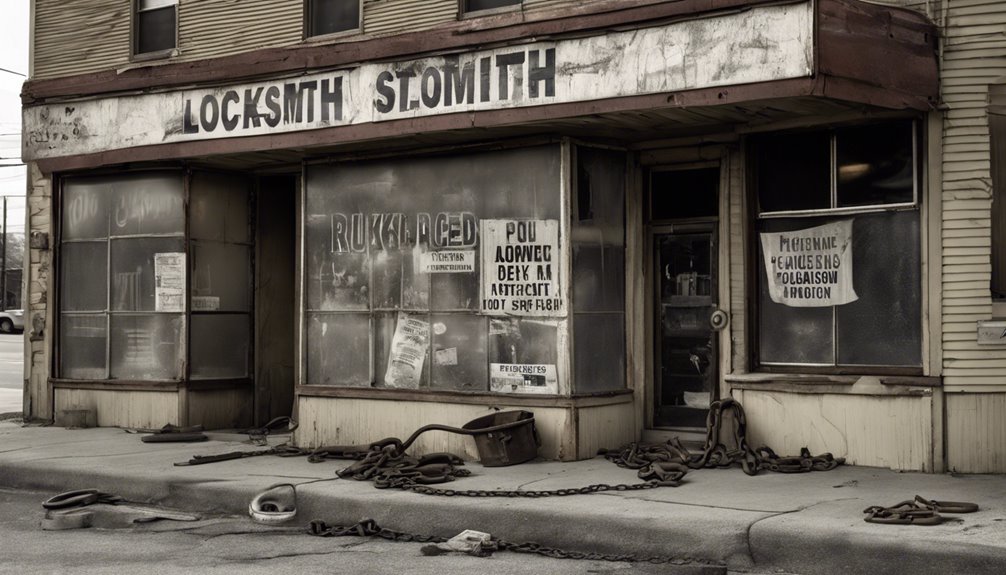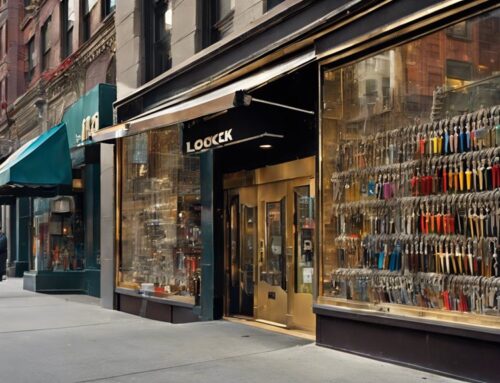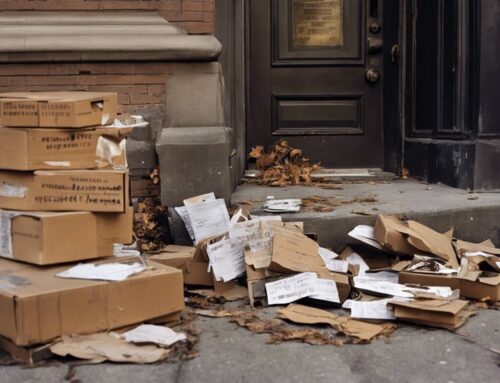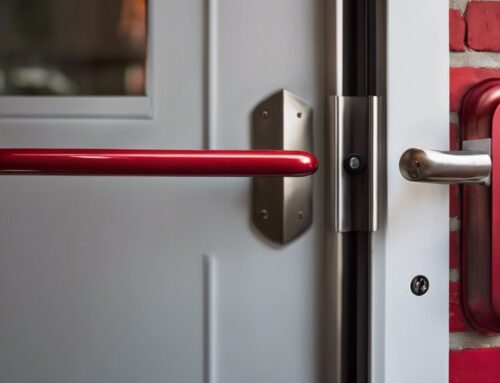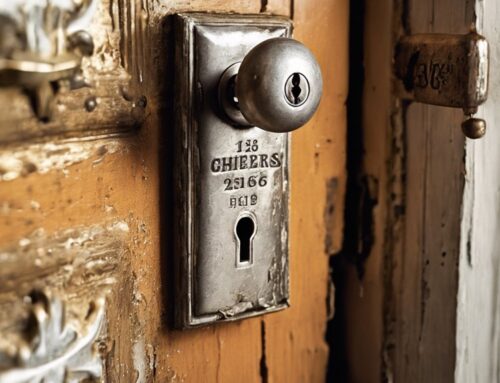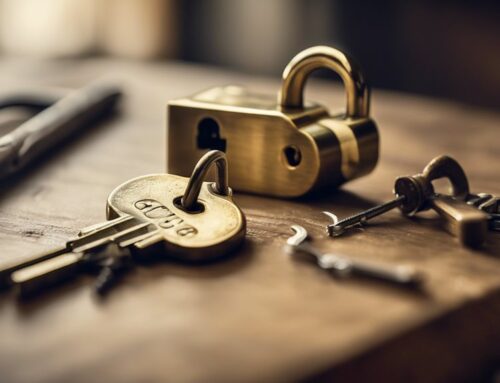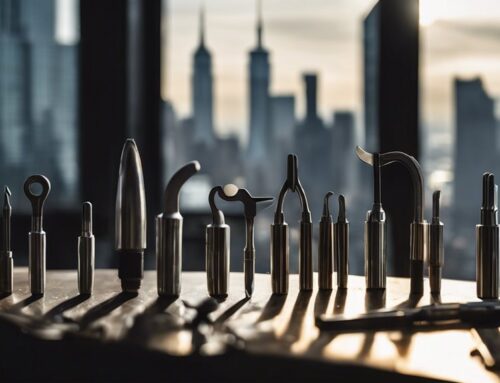If you're considering operating as a locksmith in New York without a license, you should be aware of the serious consequences that can follow. You risk daily fines, hefty penalties, and even criminal charges that can complicate your professional life considerably. Not only could your current business suffer, but your reputation might take a hit, limiting future opportunities. You might be wondering what this means for your success as a locksmith… and what steps you can take to avoid falling into this precarious situation.
Key Takeaways
- Operating without a locksmith license incurs daily fines of $100, which accumulate rapidly for each unlicensed day.
- First violations result in penalties starting at $375, escalating to $500 for repeated offenses, potentially reaching $1,000 for multiple violations.
- Unlicensed locksmiths face the risk of license suspension or revocation, along with inspections and fines for adherence failures.
- Lack of a license restricts employment opportunities and access to training programs, hindering professional growth and future success.
- Operating unlicensed damages business reputation, affecting client trust and community perception due to legal issues and unprofessionalism.
Legal Consequences
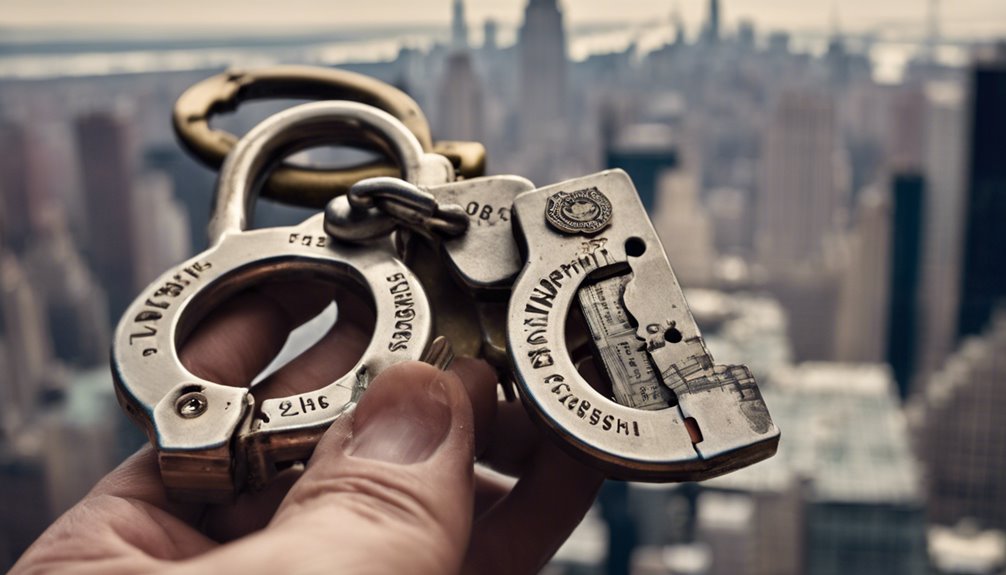
Consequences of Operating Without a License for New York Locksmiths
Legal Consequences
Operating without a locksmith license in New York brings significant legal consequences that can severely impact your business. You face daily fines of $100 just for operating without the required license. Additionally, operating without proper licensing undermines employment laws established for locksmiths in New York, which are designed to protect both consumers and professionals. Failure to adhere to these regulations not only poses legal challenges but also introduces risks related to navigating legal risks, crucial for maintaining a compliant business.
Beyond that, if you fail to comply with locksmith regulations, you could incur penalties starting at $375 for the first violation, escalating with repeat offenses—up to $500 for subsequent violations. Not only can this financial strain affect your bottom line, but consistent non-compliance may also catch the attention of authorities, prompting further scrutiny.
Your license isn't just a piece of paper; it's a legal requirement. Without it, you risk suspension or even revocation. If you accumulate multiple violations within a two-year period, concurrent suspension periods may apply, resulting in longer interruptions to your business operations.
Additionally, if you violate regulations concerning equipment listing, key marking, or license display, you'll find yourself facing similar fines for each infraction. Moreover, it's essential to recognize that state regulations mandate licensing for locksmiths in New York, emphasizing the critical need for compliance.
And then there's your criminal background. If you have certain convictions, your license issuance or renewal could be in jeopardy, compounding your challenges.
Compliance isn't optional—it's a necessity if you want to avoid the ongoing threat of legal repercussions. By abiding by New York's locksmith requirements, you safeguard your business's integrity, reputation, and financial stability.
Licensing Denial
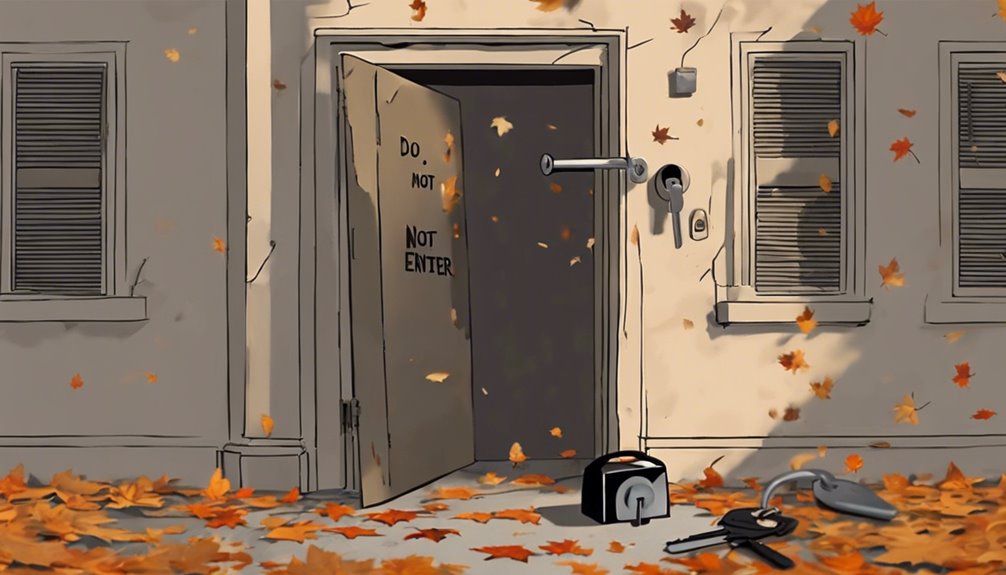
Although the path to obtaining a locksmith license in New York might seem straightforward, various factors can lead to licensing denial, greatly hindering your ability to operate legally. One major hindrance is falsely representing your qualifications or conducting your business without the necessary credentials.
If you fail to disclose any prior convictions resulting in imprisonment or fines, this could also jeopardize your application. The Department of Consumer Affairs (DCA) won't overlook a history of a denied, suspended, or revoked license. Additionally, it's important to understand that improperly changing locks after an eviction can also lead to severe legal repercussions, showcasing why adherence to proper procedures is vital. Engaging in lock picking without authorization can be considered a serious violation of New York's lock picking laws, further affecting your application.
When you apply, they consider the seriousness of your past offenses, the time elapsed since those incidents, and your age at the time, ensuring a fair and nuanced assessment. Misconduct directly related to the locksmith profession can further complicate matters, casting doubt on your trustworthiness. Proof of locksmith qualifications is crucial, as it reinforces your credibility in the eyes of the DCA.
To bolster your chances, you need to furnish specific documentation, such as proof of completion of an accredited locksmithing course and recommendations from licensed professionals.
A mandatory background check, including fingerprinting, is part of the process, and while a criminal conviction doesn't automatically disqualify you, its severity is a critical factor.
Submitting your application involves adhering to detailed administrative processes laid out by the DCA. Remember, filing fees are non-refundable if your application gets denied, adding a financial risk to your endeavor.
Carefully steering through these steps is essential, as a denial could greatly impede your aspirations in the locksmith business.
Business Implications
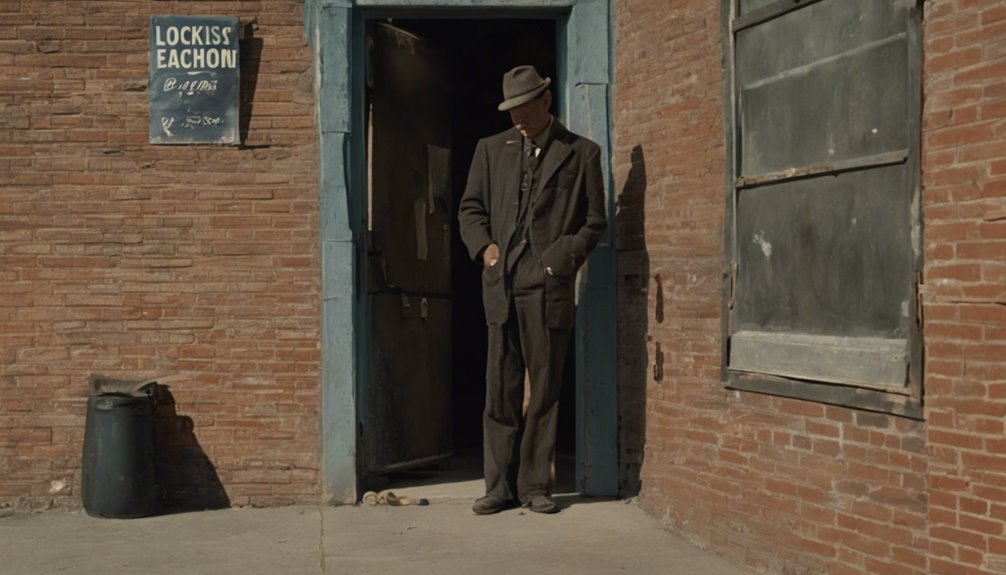
Failing to obtain a locksmith license in New York carries significant business implications that can jeopardize your operations. The legal ramifications of working without a license can quickly escalate, leading to penalties that not only threaten your financial stability but can also prompt authorities to close your business altogether. Additionally, your ability to bid on contracts may be severely limited, restricting your growth potential. More than ever, it's important to note that operating without a license can lead to serious legal actions by state authorities, reinforcing the necessity of compliance in the locksmith industry. Compliance with the SAFE Act is crucial for maintaining operational integrity and safety standards. Furthermore, using tools associated with lock bumping without proper licensing could further complicate your legal standing within the industry.
| Implication | Description |
|---|---|
| Legal Consequences | Daily fines of $100, violation penalties starting at $375, potential arrests for fraud. |
| Business Closure | Authorities may shut down operations for minor lapses, resulting in lost revenue and legal fees. |
| Operational Restrictions | Inability to bid on projects, restrictions on offered services, non-compliance fines. |
| Reputation Impact | Loss of trust among customers, competitive disadvantages, negative public perception due to legal issues. |
Your reputation is your business's lifeblood. Operating without a license can irrevocably damage the trust your clients place in you. Competitors who comply with regulations will outshine unlicensed businesses, making it hard to regain your footing in the market. The ripple effects of licensing non-compliance can stifle your ability to innovate or introduce new services. Ultimately, adhering to licensing requirements isn't just about avoiding legal issues; it's about preserving the integrity, viability, and credibility of your locksmith business in a competitive landscape.
Financial Burden

Operating without a locksmith license puts you at risk of accumulating substantial fines and penalties, which can quickly escalate.
With daily fines starting at $100 and additional charges for multiple violations, the financial consequences can become overwhelming. Additionally, the lack of adherence to legal responsibilities can expose operators to greater risks and liabilities.
Moreover, legal fees for defending against these violations only add to the mounting financial burden. Additionally, these penalties highlight the importance of adhering to ethical standards and regulations to avoid legal issues.
Fines and Penalties Impact
If you choose to operate as a locksmith in New York without the necessary license, be prepared for significant financial repercussions that can impact your business's bottom line. Daily fines start at $100, accumulating for each day of unlicensed operation.
If you continue to operate without complying with regulations, you could face escalating penalties of $375 for a first violation, increasing to $500 for subsequent offenses. Civil penalties can also reach up to $1,000 for repeat violations. Additionally, it's important to understand that tenant and landlord rights can be affected if unlicensed locksmiths are involved in unauthorized lock changes.
Moreover, the risk of equipment removal and storage fees adds another layer of financial strain. If authorities seal your premises due to unlicensed activities, you may lose valuable operational days and further income.
Potential imprisonment of up to 15 days for violations can disrupt your ability to manage your business effectively.
Ignoring licensing requirements not only jeopardizes your financial stability but also your reputation. Long-term consequences from fines and penalties can create a cycle of debt, making it increasingly difficult to maintain your business operations. Additionally, operating without a license can impede your ability to perform critical duties in eviction procedures that require licensed locksmiths.
In the competitive locksmith industry, the cost of non-compliance far outweighs the investment in legal licensing.
Legal Fees Accumulation
Legal fees can quickly add up for locksmiths in New York, turning compliance into a substantial financial burden. When operating without proper licensing, you expose yourself to potential legal consequences, including fines that demand immediate attention. If you find yourself in violation, you may need legal representation, which can greatly escalate your costs.
Moreover, ongoing compliance with regulations requires investment in necessary equipment and the proper handling of records—these aren't just one-time fees. Each time you face a background check or need fingerprinting, expect to incur additional expenses. Non-compliance can lead to license suspension, further necessitating legal counsel for reinstatement, adding to your financial woes.
As a licensed locksmith, you also face costs from failing to meet strict invoicing and record-keeping standards. This pressure compounds if you appeal fines or license denials, where attorney fees can consume your resources quickly.
Regulatory Actions

When operating without a license, you expose yourself to regulatory actions that can greatly impact your business.
Enforcement mechanisms, such as inspections and fines, guarantee compliance with state mandates, while non-compliance can lead to equipment seizures.
Understanding these implications is essential to maintaining your legitimacy in the industry.
Inspection Procedures Enforcement
Under New York's regulatory framework, locksmiths face stringent inspection procedures designed to uphold industry standards and assure public trust. Licensed locksmiths are required to maintain a detailed record of each transaction, including the names and addresses of clients and the specific services performed. This record book is available for inspection by authorized personnel at all reasonable times, guaranteeing transparency in your operations.
You must also obtain a signature or mark from the person requesting the service and confirm they're authorized to have the item opened, as dictated by the commissioner's rules. It's not just about compliance; it's about trust. The process adds a layer of security, protecting both you and your clients.
Frequent inspections by the commissioner or police officers enforce these rules, with non-compliance resulting in varied penalties, including fines or license suspension. Multiple violations could escalate these consequences, jeopardizing your business's viability.
Thorough understanding and adherence to the inspection procedures aren't just legal obligations; they're crucial to maintaining your reputation as a trustworthy locksmith in New York. Your freedom to operate depends on your commitment to these rigorous standards.
Equipment Seizures and Fines
Operating without a license as a locksmith in New York can lead to considerable consequences, including the seizure of your equipment. Authorities aren't just taking away your tools; they're enforcing regulations that can disrupt your livelihood.
| Consequence Type | Details |
|---|---|
| Equipment Seizures | Tools like lock picks and code books can be confiscated. |
| Fines for Violations | Start at $100 per day, escalating with each infraction. |
| Total Financial Impact | Cumulative fines can quickly reach thousands. |
When the police or regulatory department seizes your equipment, it's handled according to strict regulations, preventing you from reclaiming it in its original form. Fines also accumulate, meaning every day you operate unlicensed costs you more. The first violation nets a $375 fine, but subsequent infractions hit even harder, impacting your finances when you can least afford it.
The reality is simple: operating without a license can obliterate your freedom to work, greatly affecting your financial stability and future in this field. Respecting the licensing laws isn't just smart—it's essential to maintain your independence as a locksmith.
Compliance Mandates and Audits
Compliance with licensing mandates is vital for locksmiths in New York City, as operating without the necessary credentials is illegal and subject to strict regulatory scrutiny.
Every locksmith must possess a valid license from the NYC Department of Consumer Affairs (DCA), requiring proof of qualifications and background checks—mandatory fingerprinting included.
The licensing application is straightforward; you can submit it online or in person, but you need to pay processing fees and disclose any criminal history.
Essential to maintaining your license is the obligation to keep detailed records of all services, including client information and identification methods. These record books must be available for inspection at all reasonable times, emphasizing transparency and accountability.
Regular inspections by DCA representatives or local enforcement guarantee compliance, with fines or even license revocation being potential consequences of non-compliance.
If there's any suspicion of wrongdoing, auditors can demand additional information or conduct further inspections.
Beware: any violations discovered can severely impact your ability to operate freely in this profession.
As a result, adhering to licensing regulations isn't just a legal obligation; it's vital for your reputation and business longevity.
Professional Reputation

Professional reputation is an essential factor in the locksmithing industry, markedly influencing client perceptions and business success. When you operate without a license, trust and credibility immediately come into question. Clients expect locksmiths to adhere to industry standards, and unlicensed practitioners often fail to meet these expectations, compromising client security.
The lack of qualifications can lead to subpar workmanship, resulting in hidden costs and unexpected charges that further erode trust. Negative reviews proliferate when clients receive poor service. These damaging assessments can easily spread online, dissuading potential clients from choosing your services. If negative feedback dominates your online presence, it'll be challenging to attract new business.
Word-of-mouth recommendations suffer too; satisfied clients are less likely to sing your praises when their experience is marred by unprofessionalism. Moreover, your legal standing directly affects your reputation. Criminal charges against unlicensed locksmiths not only shutter operations but also create a public record that stains your name and reputation.
Even financial penalties can create burdens that linger, further diminishing client trust. Lastly, community perception plays a significant role. If you're viewed as unreliable or untrustworthy, your name could become synonymous with risk, discouraging clients from considering your services.
In a field so reliant on personal referrals and client relationships, a damaged reputation can hinder your operational freedom and ability to thrive. Prioritizing proper licensing and maintaining professionalism isn't just a legal necessity; it's integral to building and preserving your professional reputation.
Impact on Future Opportunities

Since failure to obtain a locksmith license has far-reaching implications, your future opportunities within the industry could be severely compromised.
Operating without a license exposes you to legal penalties, which can escalate to as much as $500 depending on the violation. Each unlicensed day incurs a fine of $100. If you accumulate multiple violations, your ability to work in this field could become profoundly limited, as license suspensions or revocations maintain a lasting impact on your career trajectory.
Additionally, you won't be able to work in various establishments, including hotels and office buildings, which restricts your employment options considerably. Without a trainee license, you can't even pursue apprenticeship roles. This absence of a valid license hinders your capability to start or grow a locksmith business, making compliance with regulations critical for your future success.
Educational opportunities also vanish once you operate unlicensed; positions in structured training programs or institutions require proper licensing. Even the advanced training and certification needed to elevate your skills will be out of reach.
In essence, your unlicensed status creates a negative record that can haunt you for years, stifling future applications for licenses. If you seriously consider a career in locksmithing, understanding the complete spectrum of consequences tied to licensing is non-negotiable.
Complying with legal requirements isn't just a formality; it's the foundation for your opportunities down the line.
Frequently Asked Questions
What Are the Specific Steps to Apply for a Locksmith License in New York?
To apply for a locksmith license in New York, start by meeting eligibility criteria, which includes enrolling in an accredited program and passing a background check.
Gather the required documents, like your application form, photo ID, and proof of training.
Then, file your application online or in person, ensuring it's complete.
After submission, await the approval email.
Finally, remember to keep track of renewal deadlines and additional requirements for maintaining your license.
How Can I Report Unlicensed Locksmith Activity to Authorities?
To report unlicensed locksmith activity, you can start by contacting the NYC Department of Consumer Affairs online or in person.
Provide detailed evidence to support your claim. You might also reach out to the New York State Division of Consumer Protection for assistance or file a complaint via their hotline.
If you find the situation urgent, don't hesitate to alert local law enforcement.
Always document your communications for future reference.
What Types of Businesses Require a Locksmith License in New York?
So, you think you can just stroll around town fixing locks without a care? Not in New York!
If you're repairing, installing, or inspecting locks, managing keys, or performing locksmith duties in hotels and stores, you better have a license.
Even self-employed locksmiths, working under business structures, need one.
Fundamentally, any business touching locksmithing requires proper certification to keep you—and your valuable clients—on the up-and-up in this bustling metropolis.
Are There Any Exceptions for Operating Without a License in Emergencies?
Unfortunately, there aren't any specific exceptions for operating without a license in emergencies.
You might think emergencies provide a valid reason to bypass licensing, but regulations firmly maintain that unlicensed operations are prohibited, regardless of the situation.
If you're considering locksmith work, securing the appropriate license is essential to protect yourself from penalties or legal repercussions—operating without one could lead to severe consequences, even in urgent circumstances.
Always stay compliant.
How Long Does the Licensing Process Typically Take for Locksmiths?
The licensing process for locksmiths in New York City can feel like an eternity, but it's usually a matter of a few weeks.
Once you submit your application, it goes through a thorough review by the Department of Consumer and Worker Protection.
Verify all your documents are in order to avoid frustrating delays.
If you pass the background check, you'll get that coveted license and be on your way to securing your locksmithing future!
Conclusion
Operating without a license as a locksmith in New York isn't just risky; it's a slippery slope you don't want to slide down. The immediate daily fines can pile up fast, leading to unexpected financial strain. At the same time, you risk damaging your reputation and future opportunities in a competitive field. Coincidentally, it's those small decisions that can unravel years of hard work. In the end, securing your license isn't just a choice; it's a necessity for success.

